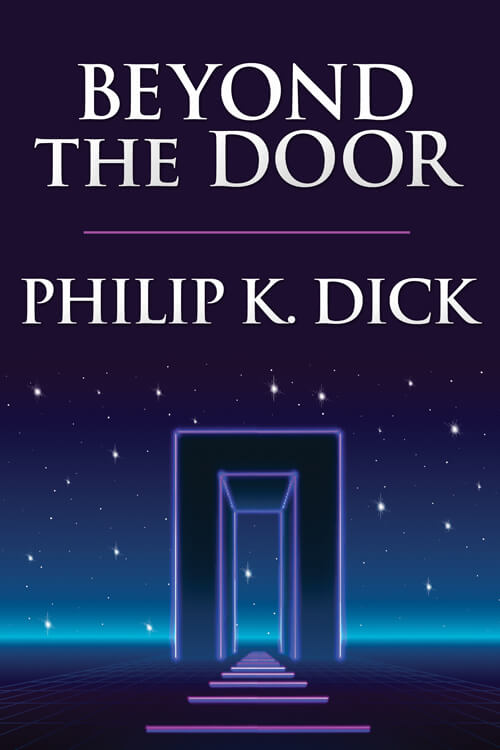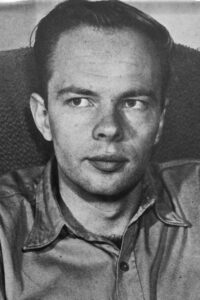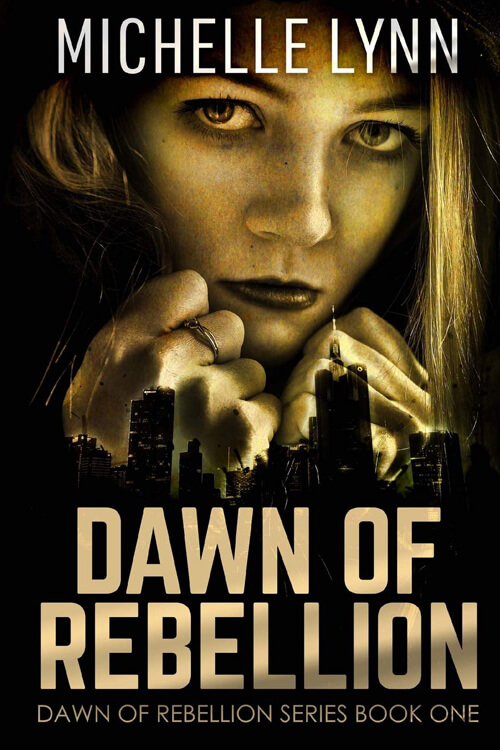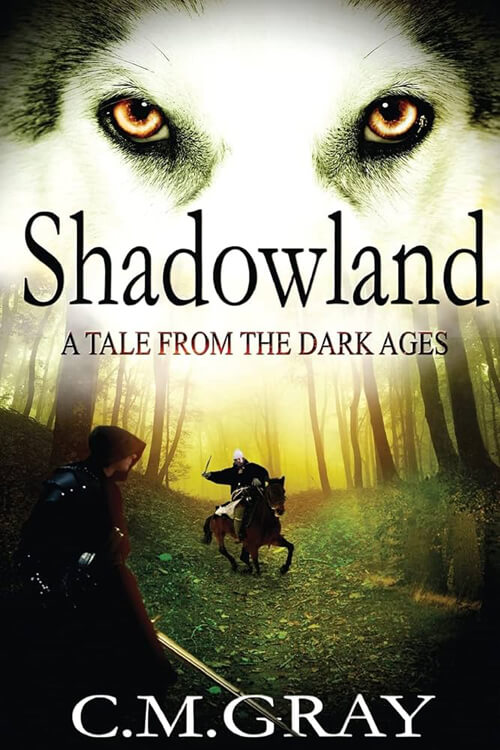
Beyond the Door
That night at the dinner table he brought it out and set it down beside her plate. Doris stared at it, her hand to her mouth. “My God, what is it?” She looked up at him, bright-eyed.
“Well, open it.”
Doris tore the ribbon and paper from the square package with her sharp nails, her bosom rising and falling. Larry stood watching her as she lifted the lid. He lit a cigarette and leaned against the wall.
“A cuckoo clock!” Doris cried. “A real old cuckoo clock like my mother had.” She turned the clock over and over. “Just like my mother had when Pete was still alive.” Her eyes sparkled with tears.
“It’s made in Germany,” Larry said. After a moment he added, “Carl got it for me wholesale. He knows some guy in the clock business. Otherwise, I wouldn’t have—” He stopped.
Doris made a funny little sound.
“I mean, otherwise I wouldn’t have been able to afford it.” He scowled. “What’s the matter with you? You’ve got your clock, haven’t you? Isn’t that what you want?”
Doris sat holding onto the clock, her fingers pressed against the brown wood.
“Well,” Larry said, “what’s the matter?”
He watched in amazement as she leaped up and ran from the room, still clutching the clock. He shook his head. “Never satisfied. They’re all that way. Never get enough.”
He sat down at the table and finished his meal.
Read or download Book
Philip K. Dick
Philip Kindred Dick (December 16, 1928 – March 2, 1982), often referred to by his initials PKD, was an American science fiction writer. He wrote 44 novels and about 121 short stories, most of which appeared in science fiction magazines during his lifetime.
Biography.
His fiction explored varied philosophical and social questions such as the nature of reality, perception, human nature, and identity, and commonly featured characters struggling against elements such as alternate realities, illusory environments, monopolistic corporations, drug abuse, authoritarian governments, and altered states of consciousness. He is considered one of the most important figures in 20th-century science fiction.
Born in Chicago, Dick moved to the San Francisco Bay Area with his family at a young age. He began publishing science fiction stories in 1952, at age 23. He found little commercial success until his alternative history novel The Man in the High Castle (1962) earned him acclaim, including a Hugo Award for Best Novel when he was 33. He followed with science fiction novels such as Do Androids Dream of Electric Sheep? (1968) and Ubik (1969). His 1974 novel Flow My Tears, the Policeman Said won the John W. Campbell Memorial Award for Best Science Fiction Novel.
Following years of drug abuse and a series of mystical experiences in 1974, Dick’s work engaged more explicitly with issues of theology, metaphysics, and the nature of reality, as in novels A Scanner Darkly (1977), VALIS (1981), and The Transmigration of Timothy Archer (1982). A collection of his speculative nonfiction writing on these themes was published posthumously as The Exegesis of Philip K. Dick (2011). He died in 1982 in Santa Ana, California, at the age of 53, due to complications from a stroke. Following his death, he became “widely regarded as a master of imaginative, paranoid fiction in the vein of Franz Kafka and Thomas Pynchon”.
Dick’s posthumous influence has been widespread, extending beyond literary circles into Hollywood filmmaking. Popular films based on his works include Blade Runner (1982), Total Recall (adapted twice: in 1990 and 2012), Screamers (1995), Minority Report (2002), A Scanner Darkly (2006), The Adjustment Bureau (2011), and Radio Free Albemuth (2010). Beginning in 2015, Amazon Prime Video produced the multi-season television adaptation of The Man in the High Castle, based on Dick’s 1962 novel; and in 2017 Channel 4 produced the anthology series Electric Dreams, based on various Dick stories.
In 2005, Time named Ubik (1969) one of the hundred greatest English-language novels published since 1923. In 2007, Dick became the first science fiction writer included in The Library of America series.






